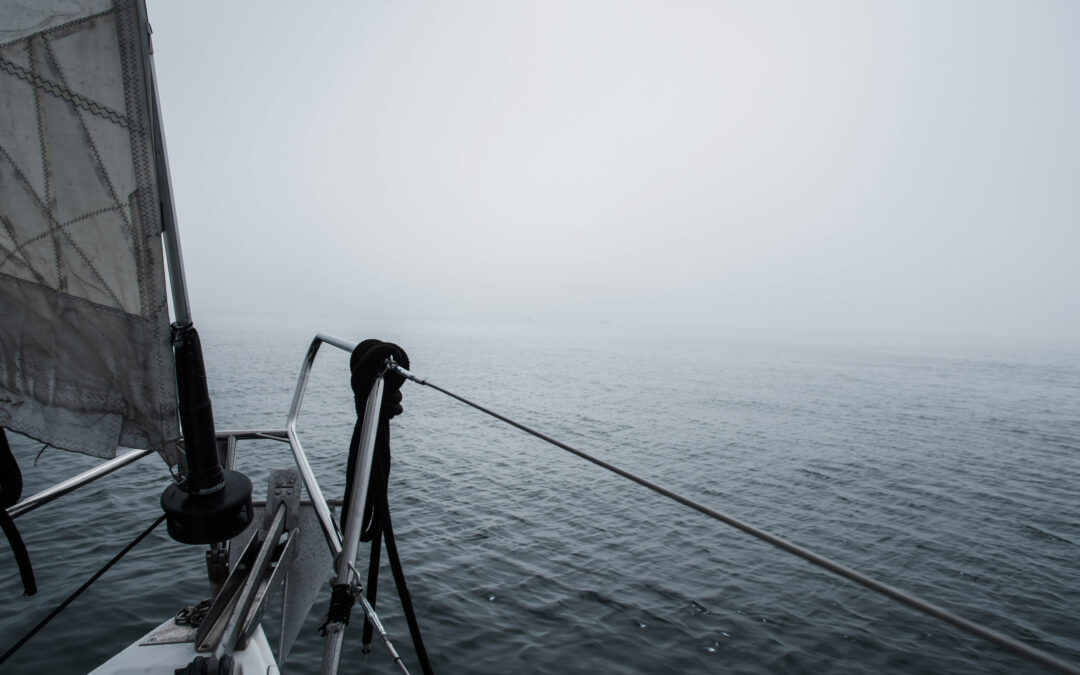Of all the obstacles to human dignity, creativity, and survival, the accelerating impact of the climate crisis is one of the most existential. The result of burning carbon and other greenhouse gases for over 150 years is already causing hotter temperatures, more severe storms, increased drought, warming and rising seas, species loss, food shortages, new or worsening disease, poverty, and displacement.
These impacts are only going to get worse.
The world has yet to exceed the 1.5-degree threshold, but dangerous conditions are already occurring at the current warming of 1.1 degrees. Even while we must continue to fight for climate mitigation, the need for adaptation is now inevitable. It’s not just the climate advocates who need to calculate the threat multiplier of our warming planet into their strategies. Everyone will need to adapt.
Everyone, of course, includes funders who, arguably, should be leading the way. That does not appear to be the case, though, according to research just released by the Center for Effective Philanthropy (CEP). In CEP’s new report, Much Alarm, Less Action: Foundations and Climate Change, we see that there is a notable disconnect between the alarm that foundation leaders express about climate change and the actions they are taking. But as the climate crisis pervades every area of our lives, it’s time that alarm leads to urgent action.
The Rockefeller Brothers Fund’s programs address some of the most pressing challenges of today — including the climate crisis, yes, but also shrinking democratic participation and vitality, geopolitical conflict and the dynamics that drive violence, and defending free expression in the arts. The Fund’s programs leave footprints across the globe, including in the United States, China, Central America, the Western Balkans, and New York City. The RBF also operates The Pocantico Center, in the verdant hills of the Hudson Valley, which hosts nonprofit and world leaders for strategic dialogue, artist residencies, and community events.
But the climate crisis is seeping into every part of our work, over and beyond our more traditional climate programs. Climate change is making the problems more difficult and the solutions more complicated, all while further stretching the capacity and wellbeing of our grantees and partners.
The climate crisis affects democracy. Increased inequality of income and influence is both a driver of climate change, as the wealthiest corporations and individuals generate the most carbon, and an effect, as the poorest and least powerful populations experience the most severe impacts. Corporations and wealthy individuals who profit from the oil and gas industry hold an astounding level of influence in democratic capitals around the world, especially in Washington D.C., where lobbying groups spend up to $1 billion per year to kill climate legislation. Even the act of voting is endangered by the climate crisis: voters must be willing to endure extreme heat while they wait in long lines to vote, and bigger and more frequent catastrophic weather events displace citizens and destroy polling places.
The climate crisis affects peacebuilding. Effects of the climate crisis have already created food and water insecurity in many parts of the world. Over the next decade, the impacts of climate change could push 130 million people into poverty and lead to worsening mental health. All these consequences also exacerbate irregular migration that both fuels and is fueled by violent conflict. It’s no wonder then, that changes in temperature and precipitation increase the risk of conflict and the likelihood and intensity of violence.
The climate crisis is showing up in China, Central America, and the Western Balkans. In China, government and citizen concerns over the health impacts of environmental pollution and the climate crisis have become a powerful driver for change, prompting emissions targets and a carbon neutrality pledge. Countries in tropical regions, like Honduras, El Salvador, and Guatemala, will likely experience the biggest rise in hot days due to climate change. They already face food insecurity and crop failure due to drought, as well as increased incidences of devasting hurricanes, all contributing to migration — internally as cities get denser, and externally to richer countries. Corruption has slowed the development of renewable energy in the region, despite impressive goals set by Central American governments. In the Balkans, flooding and wildfires inflame longstanding tensions that impede building truly peaceful and democratic societies, although opportunities to increase renewable energy deployment could connect sustainable Balkan cities with global networks and improve relations with European neighbors.
The climate crisis is also showing up in our work with the arts. The arts have always been integral to how humans understand crises. Climate change is an exceptional crisis that demands unique art: this is a world-sized catastrophe in which we are all complicit. Art can expand the psychological capacity to change the way humans live and behave on this planet. But we also see that art itself is at risk from our altered climate as unprecedented storms damage works of art or cultural institutions.
Furthermore, the climate crisis is affecting The Pocantico Center. Last year, the exceptionally heavy rains of Hurricane Ida infiltrated the construction site of the new David Rockefeller Creative Arts Center with 28 inches of water, setting its opening back months. The RBF has worked hard to ensure that this reimagined 1908 building won’t contribute to the climate crisis, transforming it into a net-zero building with Platinum LEED certification with an adjacent solar array that produces more energy than the building consumes.
Wherever we show up in the world, the Fund is grappling with the climate crisis. We have to — this threat is too huge to ignore, too confrontational to stay neutral, and too widespread to sit on the sidelines. It is alarming then, to read in CEP’s new report that so many funders see climate change as outside the scope of their mission, feel it is too big of a problem to tackle, or who have boards unwilling to see the crisis for the pervasive “everything” issue that is, as one leader put it in the report. The alarm is clearly there — it’s time the philanthropic sector match that with action.
One clear step for funders is to look to their endowments as a place to begin. In 2014, the RBF put our money — literally — where our mouth is and divested from fossil fuels. Since then, the financial results exceeded expectations and demonstrated that it is possible to align the endowment with the Fund’s mission without compromising performance. Even this quarter, as the global markets roil from the pandemic, geopolitics, and gas prices — all intricately linked with the climate crisis — the endowment is outperforming the average. Further work remains to fully decarbonize our endowment and invest strategically in low- to zero-carbon investments.
It is clear that the climate crisis is already having ripple effects far beyond the environment. This year, the Fund signed the International Philanthropy Commitment on Climate Change, which calls on all foundations — regardless of whether they have a climate program or not — to signal a commitment to climate action. We urge every philanthropic organization to examine the long-term impacts the climate crisis could have on its work and resources and to take action before it’s too late.
Stephen Heintz is president and CEO of the Rockefeller Brothers Fund and Deborah Burke is program officer, Sustainable Development, at the Rockefeller Brothers Fund.


